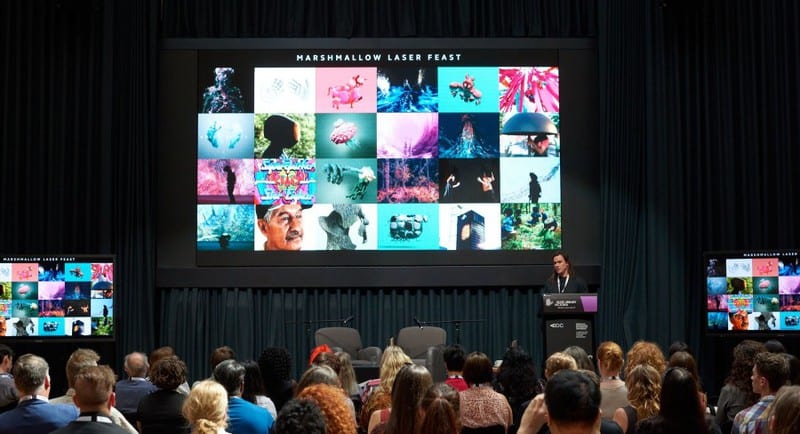The winners of the 2nd Annual Australian International Documentary Conference (AIDC) awards have been announced at a special presentation at ACMI, Melbourne, which was also live-streamed around the world.
The four-day in-person and online conference for the documentary and factual industry was concluded with the presentation, and there are two days remaining of the International Marketplace meetings.
More than 90 local and international speakers participated in the event, and a program of over 40 sessions and 500 curated meetings saw over 100 local and international decision-makers.
Delegates enjoyed AIDC 2022’s hybrid format, which facilitated a much-anticipated opportunity to catch up in person, and enhanced online access to international speakers and decision-makers.
The Winners of the 2nd annual AIDC awards were selected by the AIDC Awards Jury. They are:
Best Feature Documentary: ‘I’m Wanita’, 2020.
People Productions: Matthew Walker, Caroline Sorensen, Clare Lewis, Tait Brady
Jury Statement: “A daring boldness punctuates this film stylistically, and its colour, music and larger-than-life personalities give it a dramatic flair that seems stranger than fiction. I’m Wanita simultaneously succeeds in capturing life’s fragility and disappointments”
Best Documentary/Factual Series: ‘See What You Made Me Do’, 2021.
Northern Pictures: Tosca Looby and Karina Holden
Jury Statement: “We were all struck by the power of this original documentary series. Harrowing, compelling, important, it treated the cases and people involved with care and dealt with the raw testimony of the contributors in a compassionate and fresh way.”
Best Documentary/Factual Single: ‘Our African Roots’, 2021.
Chemical Media: Santilla Chingaipe, Tony Jackson and David Collins
Jury Statement: “the documentary uses an approachable tone that invites conversation and awareness-raising for a mainstream audience. Beautifully crafted, the film has high production values and utilises stylish dramatised vignettes that speak to an audience that needs to hear the message.”
Best Short-form Documentary: ‘Freedom Swimmer’, 2021.
No Thing Productions and Sacrebleu Productions: Olivia Martin-McGuire, Brooke Silcox and Ron Dyens.
Jury Statement: “Freedom Swimmer is a short documentary that uses a unique hybrid approach incorporating archival material, footage of protests, staged scenes between grandfather and granddaughter plus animation to illustrate flashbacks. It provides a unique perspective on how the past affects the future.”
Best Audio Documentary: ‘Tender: Roia Atmar’, 2021.
Broadwave: Madison Griffiths and Beth Atkinson-Quinton.
Jury Statement: “This podcast’s powerful and impactful storytelling that hooks the listener with one character’s story, and invites them to understand their experiences before, during and after a horrific and life-changing event. The skilful use of music and sound design throughout is highly evocative, rounding out what is a nuanced and thoughtful series.”
Best Interactive/Immersive Documentary: ‘Gondwana’, 2022.
Pernickety Split: Ben Joseph Andrews and Emma Roberts.
Jury Statement: “With not one word spoken aloud, GONDWANA is an open-play documentary set within a lush 3D spatial rainforest that unfolds over a 24-hour experience, as the devastating effects of a century-worth of climate crisis impacts the story world.”
Special Mention: ‘Ravi and Emma’, 2021.
SBS: Kylie Boltin, Ella Rubeli, Ravi Vasavan and Emma Anderson
Jury Statement: “This interactive web-doc employs the platform to profound effect. The work shows careful attention to both source and craft. For a moving and inviting portrait of love shared through sign language.”
Stanley Hawes Award: David Tiley
As part of the AIDC Awards ceremony, the already-announced Stanley Hawes Award was presented to screen journalist, David Tiley. David began his long association with the screen industry as an educational scriptwriter with the South Australian Film Corporation in 1973. This led to an eventful career in educational programs, documentaries, script editing and screen funding. David has long been a singular voice in the Australian media.
